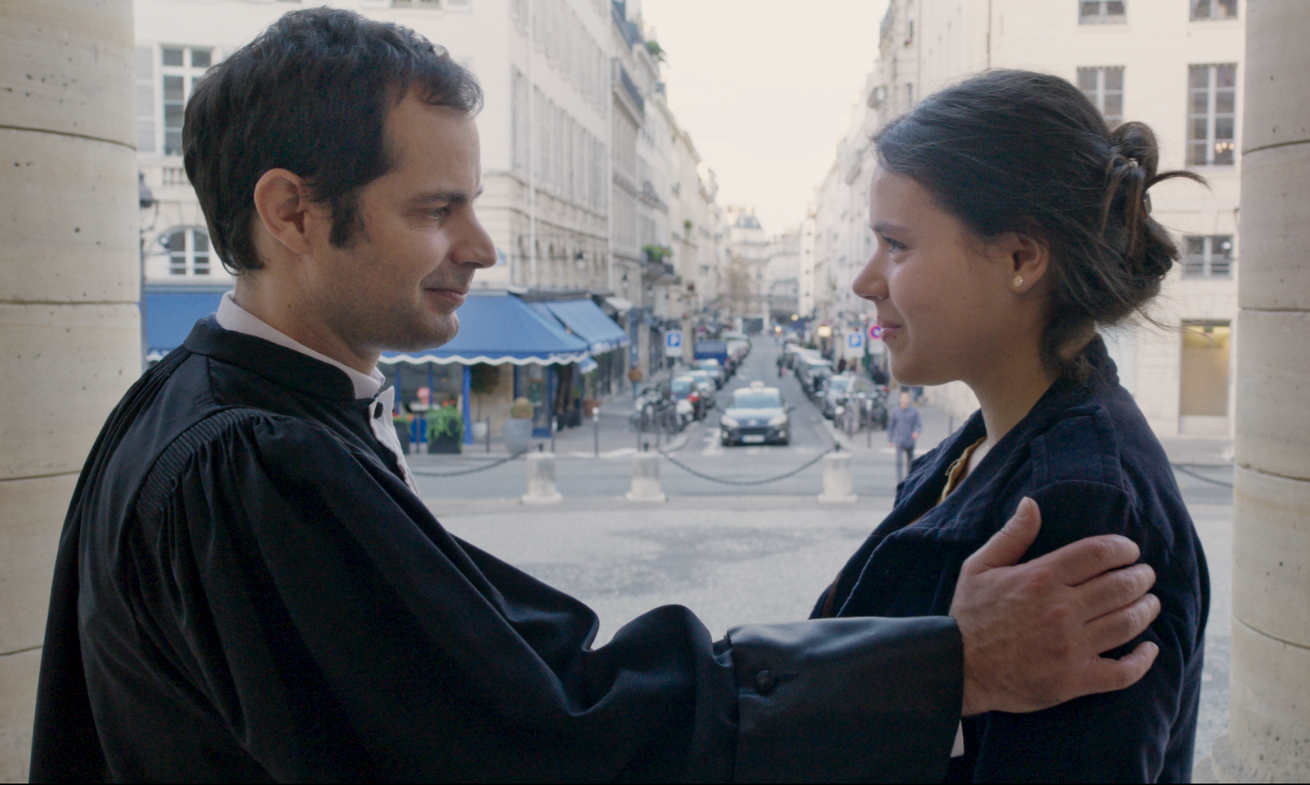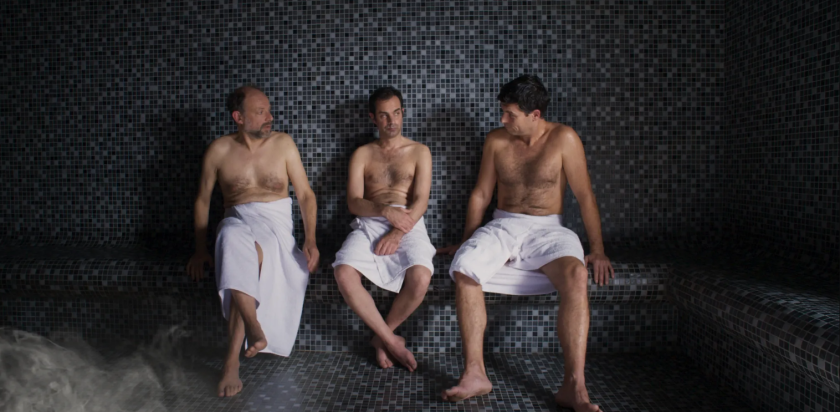Oh no. Not that orange knife and male genitals thing again. In 1976, Marco Ferreri set La Dernière Femme in Créteil in the outskirts of Paris – I was working in a school there, so the memory does tend to stick – and set out to shock audiences by having the main character, played by a young Gérard Depardieu, cut off his life expectancy with the aid of a Moulinex electric kitchen knife.
Fast forward to the orange knife in Jean-Christophe Meurisse’s Bloody Oranges (Oranges sanguines). This one is of the DIY store variety, but the clear intention to shock, provoke, and repel is very similar. In one of the film’s three interlocking tales, the teenager Louise (the excellent Lilith Grasmug) uses the knife to take her revenge on the dangerously unhinged pervert (Fred Blin) who has raped her. She cuts off his testicles, micro-waves them, and forces him to eat them. The story has a factual basis apparently: an American teenager was acquitted by a jury after having done exactly this, though possibly without Louise's macabre victory dance to the Linda Fields funk disco hit “Shame, Shame, Shame”.
So far, so gruelling and so gruesome. The two other plot strands also turn grimmer and grimmer as the film progresses. Finance minister Stéphane Lemarchand (Christophe Paou) initially faces embarrassment if his tax avoidance schemes were ever to be revealed – an overt reference to the real-life minister Jérôme Cahuzac who was jettisoned by the Hollande government in 2013 and convicted of financial crimes in 2018. Those problems, however, pale into insignificance once Lemarchand’s path also fortuitously crosses that of the same psychopath played by Fred Blin, whose anti-capitalist leanings also serve as a spur to violence.
The third story starts in sweetness, and in heated jury arguments over positive discrimination. An elderly couple Laurence and Olivier (sic), played by Lorella Cravotta and Olivier Saladin, are hoping they can clear some of their accumulated debt by winning a dance contest. Their story too provides fodder for Meurisse’s shock-fest in the latter stages of the film. The three plots are tenuously linked by the presence of spineless lawyer Alexandre (Alexandre Steiger, pictured above with Lilith Grasmug). Narrative-wise, it's all a bit contrived.
Meurisse has stated that his intention is to prompt debate, to be “on the edge of indecency”. His career-path has been in acting and in running an expermental theatre company, and there are several scenes in Bloody Oranges that seem to earn their place because they give theatre actors the opportunity to either enjoy tne irony or ridiculousness of situations, or, in quite a few cases, simply to overact.
The role of script editor Flora Volpelière seems to have been an important one here in reining in excesses. Meurisse thanks her in the documentation accompanying the film for having cut down drastically the length of the scripts of some individual scenes, starting with twenty minutes of material and whittling them down to about three minutes. Thank God.
Bloody Oranges has been described as a comedy. To me that brought to mind a line from Martha in Edward Albee’s Who’s Afraid of Virginia Woolf?: “I have a fine sense of the ridiculous, but no sense of humor.” It sums up a very uneven film.















Add comment